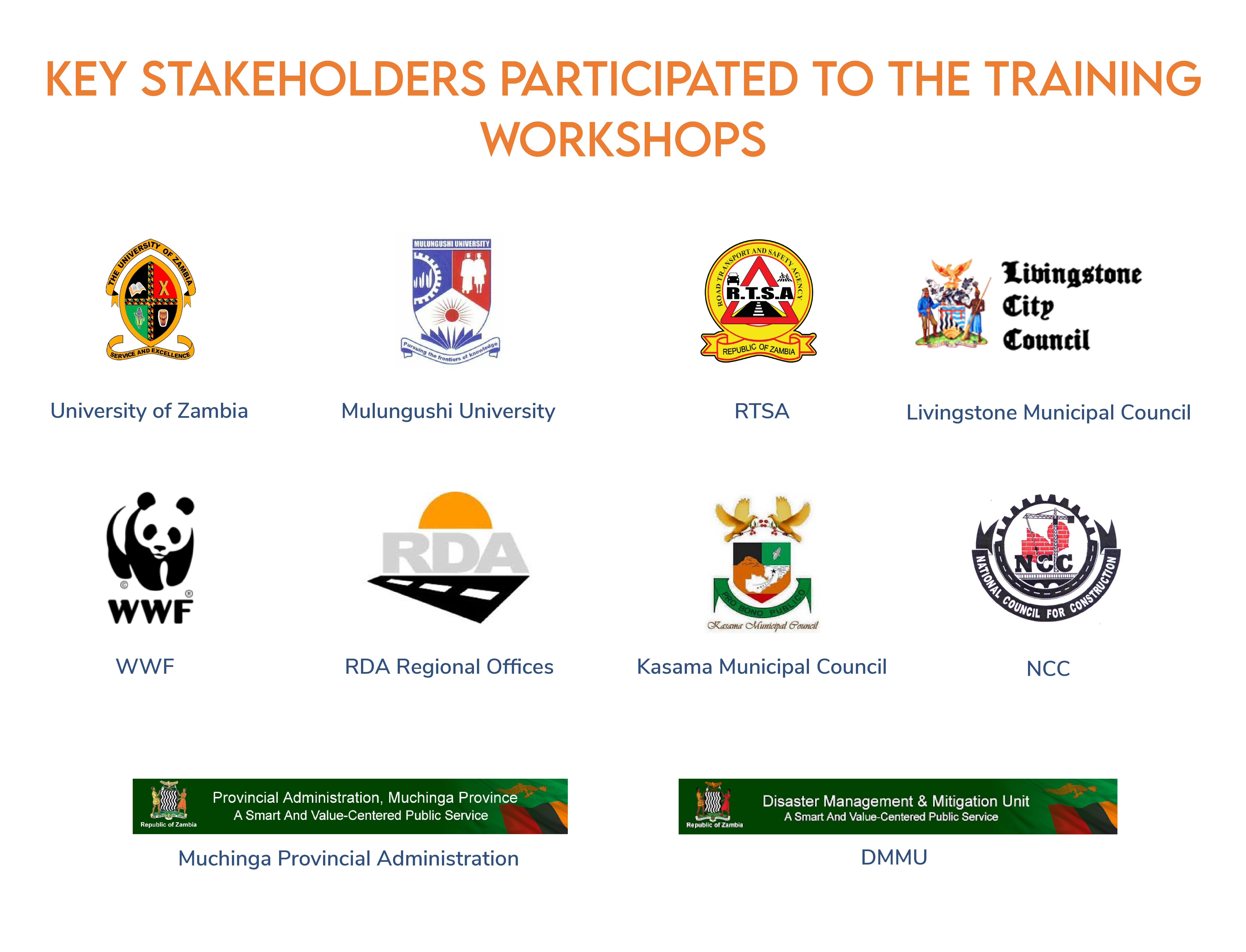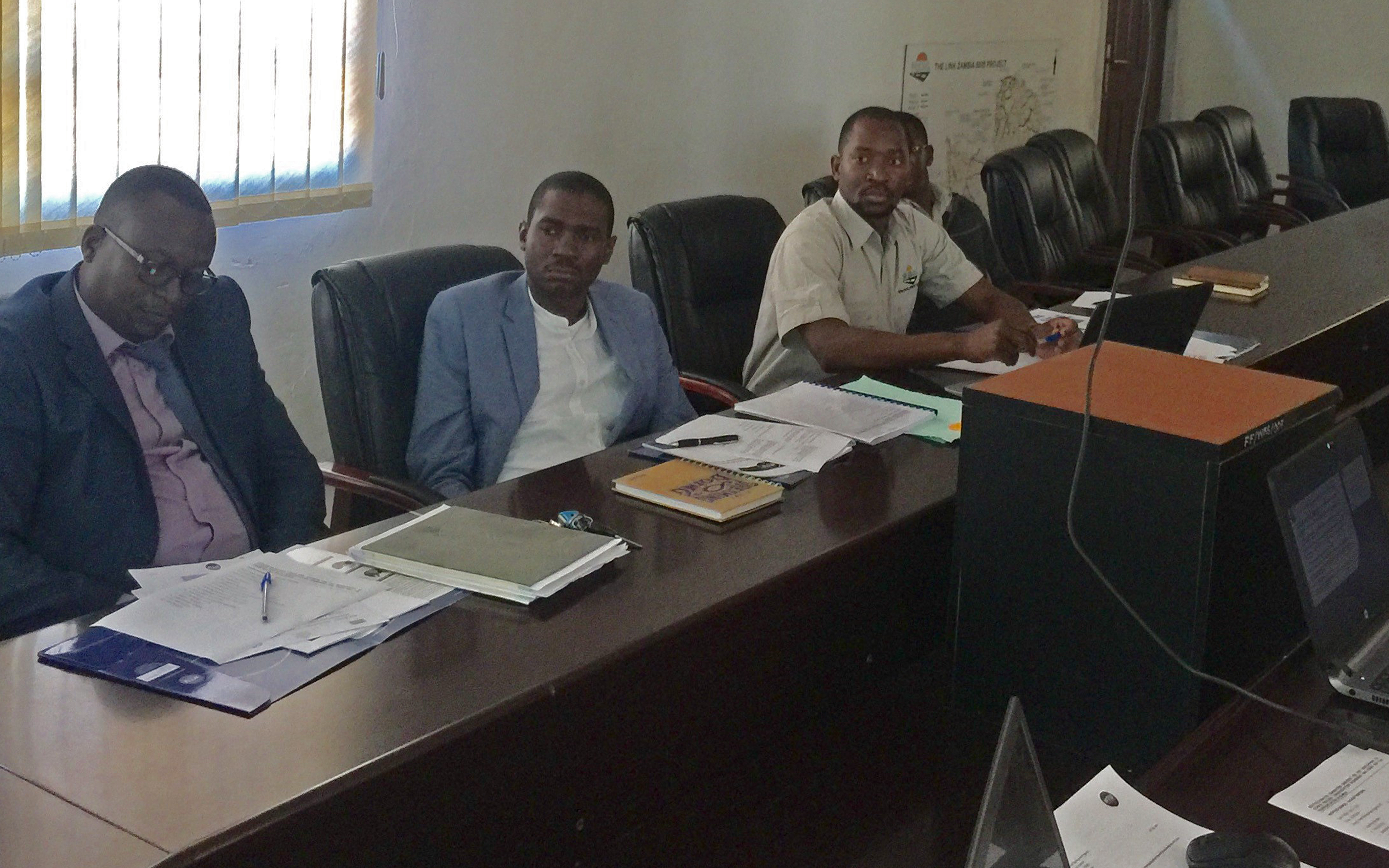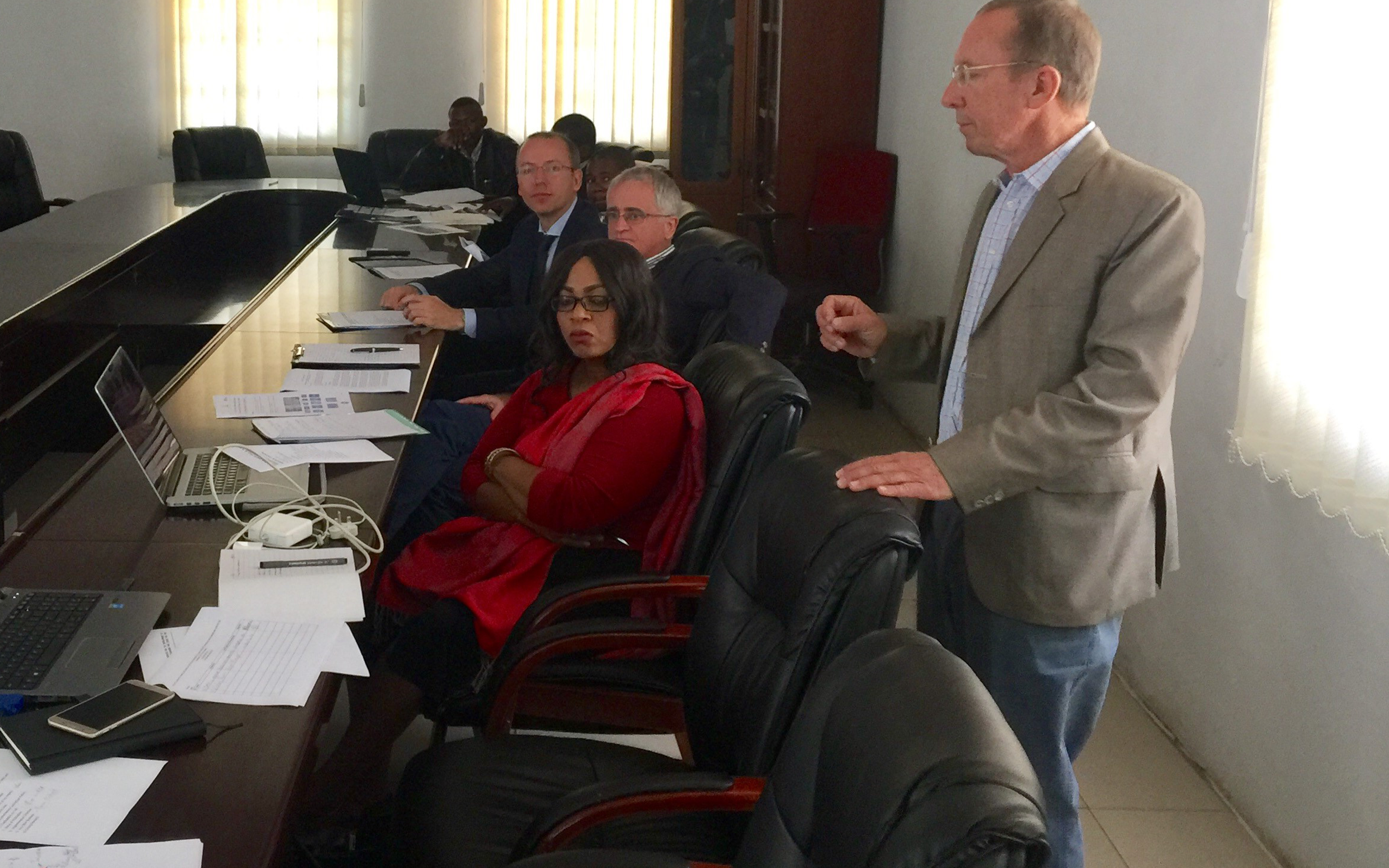Zambia, being a large and diverse landlocked country in Southern Africa, is extremely vulnerable to climate change impacts due to, among others, its high dependence to climate sensitive sectors such as agriculture. In addition, Zambia’s climate insecurity significantly undermines the functionality and accessibility of critical infrastructure including roads and bridges. For example, the effects of climate change are particularly visible on the country’s roads where extreme rainfalls have caused severe damages.
In that regards, NTU is currently implementing a 4-year initiative to help catapult Zambia’s road infrastructure sector into a much more sustainable future. The project with reference “Consulting Services for the Development of Climate Resilient Infrastructure Standards and Codes for the Transport Sector in Zambia (2017-2021)” has a value of 3.9 M Eur and is financed by the Nordic Development Fund. It aims at applying a systematic integration of climate change adaption and resilience considerations throughout the transport sector’s design and management processes, enabling the Zambian road transport sector to continue to develop in a sustainable way.
Particular focus is placed on developing the relevant capacity and skills of the road transport sector stakeholders, including policy makers, decision makers and transport sector engineers and civil servants.

How we did it
Sustainably strengthening climate resilience in the road transport sector requires increased capacity of key transport sector stakeholders at multiple levels. Thus, in order to ensure the success of the project, NTU delivered systematic and long-term trainings and knowledge management programmes as part of the introduction of innovative adaptation and mitigation solutions into institutions and systems. This involved consultative workshops and trainings where NTU’s training specialists first mapped out the training needs and framed the Capacity Development Plan. Subsequently, NTU held several training workshops focusing on climate change vulnerability, impacts and adaptation for the road transport sub-sector including (i) policy, planning and programming; (ii) institutional coordination for climate resilience; and (iii) operational capacity development. Additional training courses targeted anti-corruption, National Climate Impact Screening and Sectorial Guidelines.
Impacts:
- Increased awareness and understanding of climate resilience issues relevant to the road transport sector by a large number of staff across key primary and secondary stakeholder organisations within or associated with the sector
- Initial exposure to a series of practice-relevant instruments and tools
- Staff development and learning designed to feed into and support the other main areas of organisational and systemic capacity development, including vision and leadership, policy and planning, institutional coordination, managing operations, and science and knowledge



Kick off meeting on 14 July 2017, NTU Project Manager and CEO meets the Representatives of the Road Development Agency of Zambia
